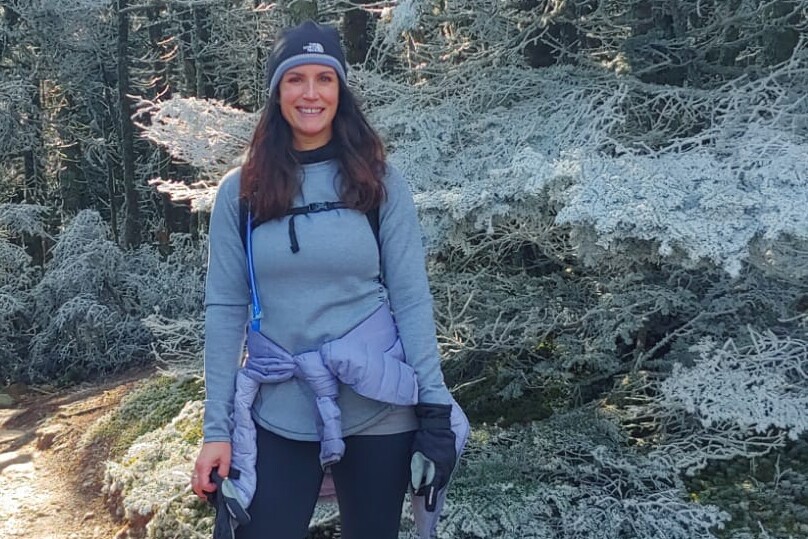Asian American Perspectives

While the history of racism against Black Americans and the need for systemic change is widely understood, another population of Americans has suffered similarly but without the widespread recognition and sympathetic support of others: Asian Americans. With the recent swath of hate crimes aimed at Asian Americans and Pacific Islanders (AAPI), we have an opportunity to raise awareness of the prejudices and inequities that have been impacting these communities in the U.S. since our very first immigration law was passed in 1875. To do this, we spoke to two Barre residents of Southeast Asian descent to better understand their experiences of growing up in the U.S. and living in Vermont as Asian Americans: Marichel and Phayvanh.
Marichel
Growing up in New Jersey, Marichel recalls the makeup of her neighborhood being overwhelmingly white. Her parents, eager for community, jumped at every opportunity to befriend other Filipinos when they met them. As a small and impressionable child, it struck Marichel that when her parents socialized with these friends in public spaces, it attracted negative attention and racially-motivated insults from others. Intent on avoiding the same treatment, she made a concerted effort to spend her time with a diverse set of friends.
“I always felt like, if I hang out with just Asian people, we’re going to be targeted,” she explained.
 But once in college, she realized that the situation was more complex than that: the targeting went both ways. She knew from watching her parents that if she associated with all-Asian American groups, she would be targeted by others for being Asian, but it quickly became clear that if she stuck with a diverse group, she found herself being targeted by other Asian Americans on campus accusing her of ‘acting white.’
But once in college, she realized that the situation was more complex than that: the targeting went both ways. She knew from watching her parents that if she associated with all-Asian American groups, she would be targeted by others for being Asian, but it quickly became clear that if she stuck with a diverse group, she found herself being targeted by other Asian Americans on campus accusing her of ‘acting white.’
“I wasn’t sure if that was an insult or what,” she says. “Then it became an issue of, ‘Wow, what is my identity?’”
Once in Vermont, one of the first memories she recalls was hearing the story about a Japanese women being beaten to death by an unstable 18-year-old man. While the incident was not considered a hate crime and did not appear to be racially motivated, it troubled Marichel. For a state in which the Asian American population accounted for approximately 1% of its residents at the time, it seemed odd that the one random person to be killed in this rare occurrence would be Japanese. It was an unsettling introduction to Vermont.
Over the years, Marichel says that she has experienced harassment by colleagues in the workplace and in the community by random strangers, from name-calling to downright discrimination. Still, Marichel has found ways to stay connected with her Asian roots while building friendships and community with people from a wide variety of backgrounds. Food, in particular, is a satisfying way to connect with her Filipino culture, although even so, it can be a reminder of the ignorance others carry. When she wrote a story for a local publication about Thai restaurants in Vermont, a white reader pointed out that she forgot to include a local Pho restaurant. “It’s a totally different culture,” she commented, highlighting the general lack of knowledge surrounding Asian cultures as opposed to European cultures.
Now, as a Barre City home-owner, tax payer, and Co-Chair of the Diversity & Equity Committee, Marichel says that she often doesn’t feel safe walking downtown. When asked about the latest uptick in verbal and physical attacks on AAPI, she says that she’s not surprised, given the derogatory “China Virus” terminology that has been used to refer to the COVID-19 virus.
“People don’t even know why anymore,” she says. “People don’t do the research for themselves anymore, and that’s scary to me.”
Her hope lies in young people, who she believes are more compassionate and understanding than previous generations, and more accepting of religions, genders, and races that may be different than their own. Marichel recently started a BIPOC group in Central Vermont to provide members with a safe, private space to gather and connect. One of her aspirations for the group is to organize group events patronizing local downtown businesses to remind everyone that Vermont is not an all-white state, and Vermont’s BIPOC residents are here and they are vital to our communities and local economies.
Despite any dismay or unease from her lived experiences and the current state of racial discrimination in our state, Marichel continues to forge ahead in her work toward racial equity. Through her dedication and leadership, not to mention her bright smile and friendly demeanor, Marichel is the perfect example of a good neighbor and model community member anyone would be lucky to have.
Phayvanh
Phayvanh and her family are Laotian refugees who settled in Brattleboro in 1979, when she was four years old. She says that she feels like they landed in a special spot because of the nearby School for International Learning (now called World Learning), where graduate students taught Phayvanh and her family to speak English as part of their degree requirements. There were also a number of ex-Peace Corps folks who had served in Laos and Thailand and were able to speak their native language, which offered a comforting connection. In addition, the family received help with obtaining employment, driver’s licenses, and other essentials, but, as Phayvanh explains, “It was all surface-level and didn’t really help us transition.”
What she feels was missing was a deeper understanding of what she and her family needed to adjust to American culture. She suggested that someone in the role of a “cultural broker” would have been beneficial – someone to help the family navigate the different customs in the U.S. in contrast to what they were used to in Laos. As an example, she recalls that it was difficult for her parents to understand what she and her brother were experiencing at school because there was no clear way to communicate with them due to nuances in language. Still, she says that her experience coming to Vermont and growing up in Brattleboro was mostly positive, adding, “I definitely knew that I was viewed differently but I was able to find a lot of friends.”
Not much has changed in terms of friends. Phayvanh is known among her social circles as a community organizer – someone who makes connections and brings people together. She and some other friends who are part of the BIPOC community or have BIPOC children have been working together to organize various groups and online or socially-distanced gatherings to give voice and community to those who may feel isolated in an overwhelmingly white state.
“There’s a reason why cultures remain insular,” she says. “Because that’s their safety net. America is terribly violent in its own nature and how it came to be. It never addressed that. It just keeps fostering that.”
She added that Vermont feels safer than more populous states, but that living in Vermont as someone who is Asian American requires a thick skin.
“It’s knowing what to brush off and what you can’t, and then knowing what to do about it,” she explains. “You have to find community of people you trust enough to let them in.”
In Vermont, where it feels more like a small town than a state, asserting oneself to call out microaggressions and misinformation, especially as an Asian American, is stressful. Social media has helped to ease some of that stress and has allowed difficult conversations to take place without fear of repercussions.
In terms of hope for the future, Phayvanh considers herself an optimist. But, she also insists that it is important to define what true “racial justice” would look like. “We all have to adopt an anti-racist stance to really move our society forward.”
This story was featured in our monthly newsletter. To get stories like this delivered directly to your inbox each month, click here to sign up!


